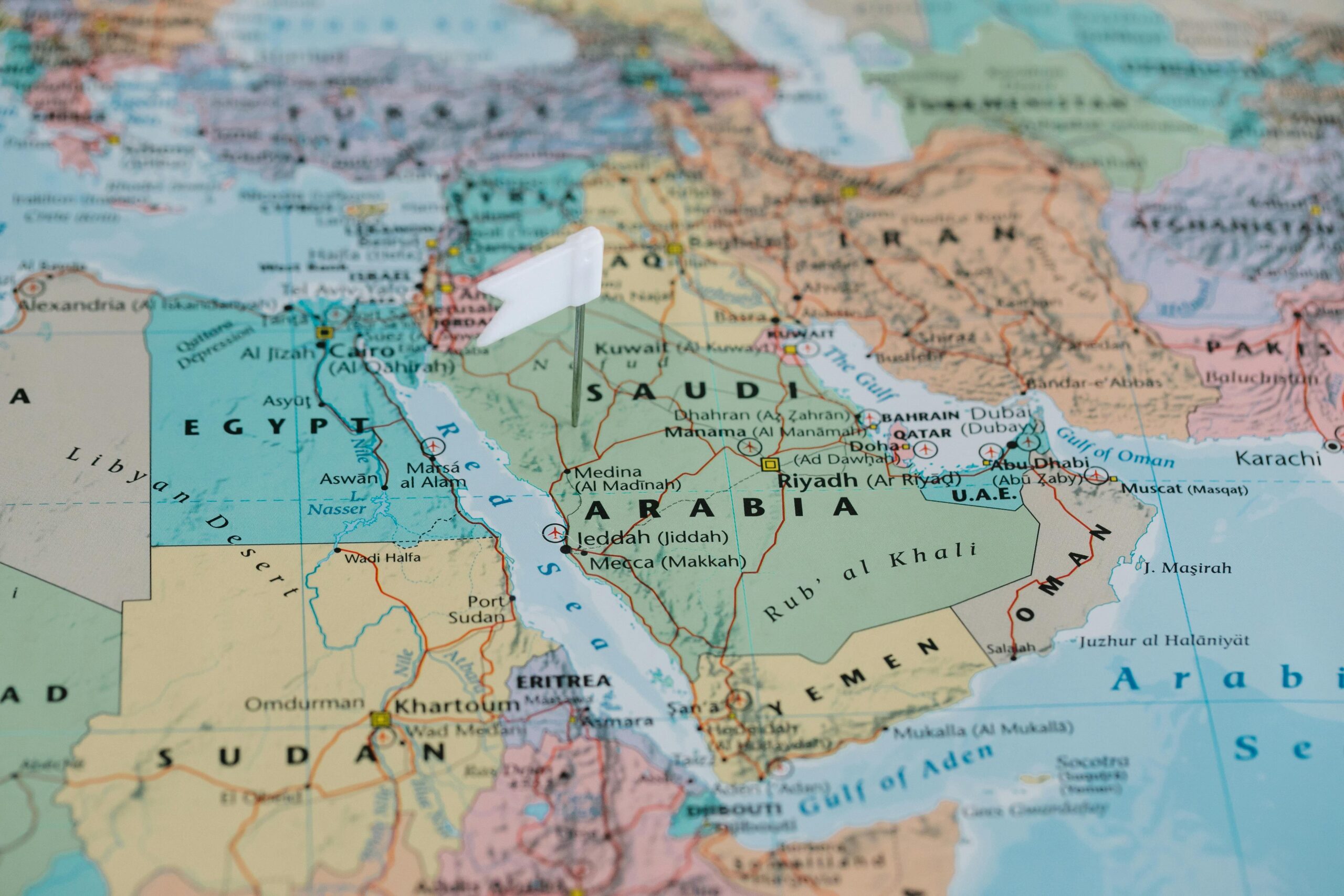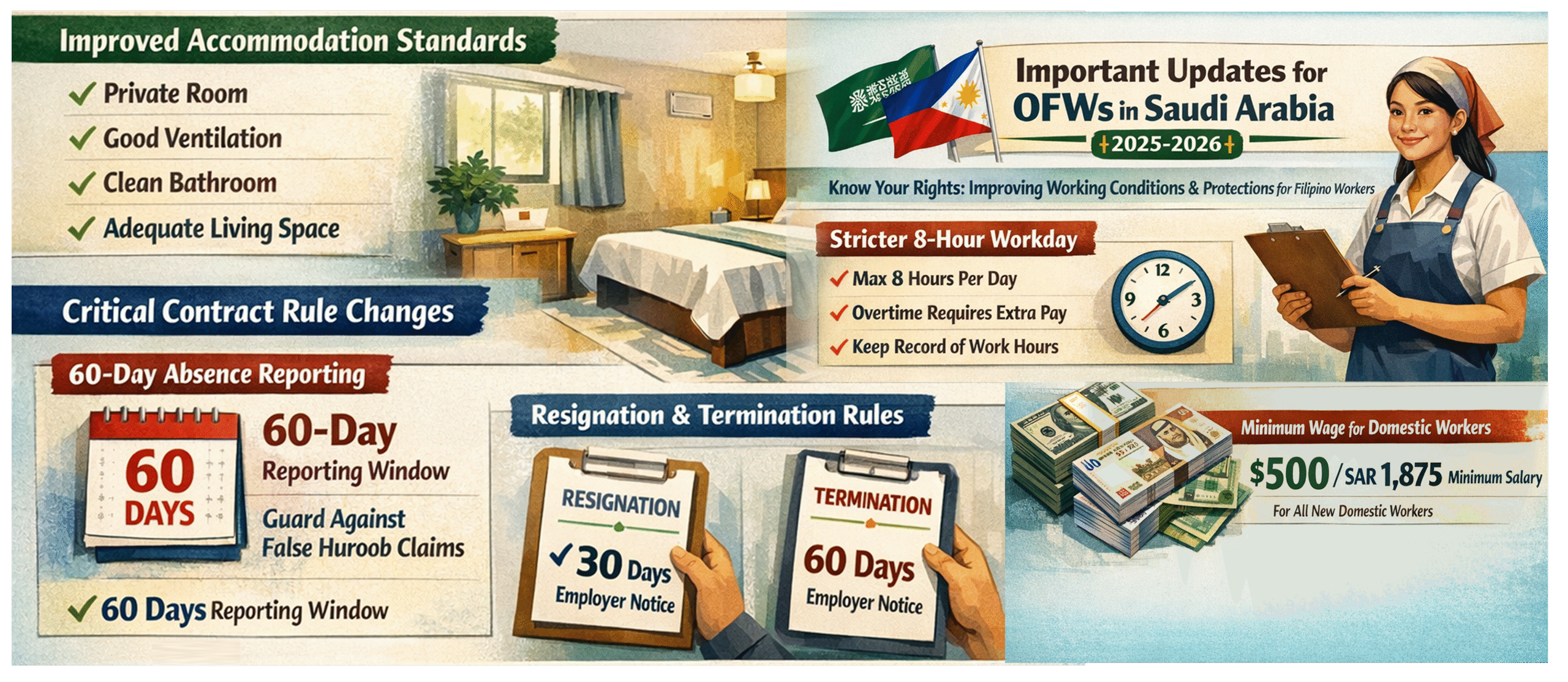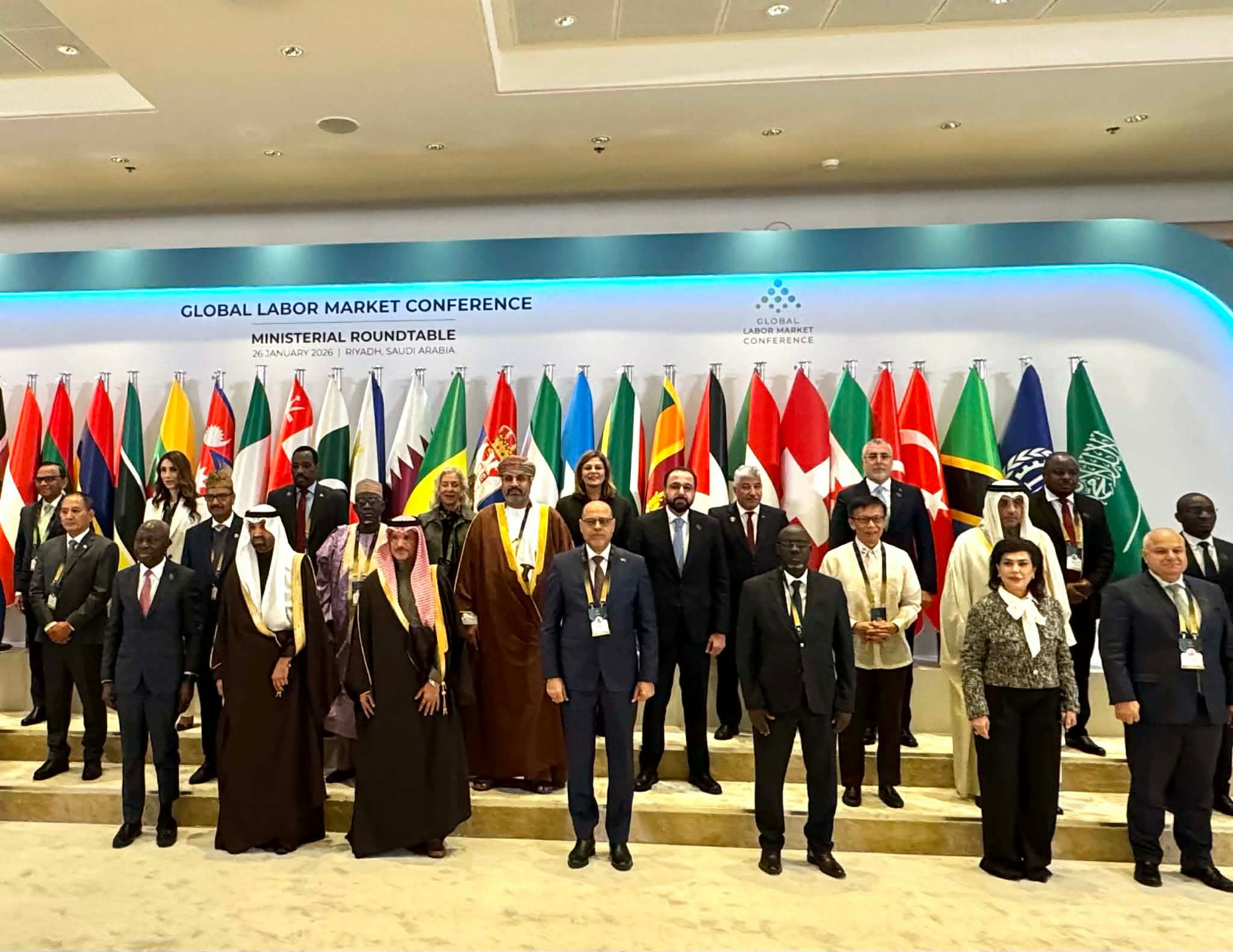On August 12, 2025, three Filipino workers were rescued from a substandard accommodation facility in Jeddah that was being run by a recruitment agency. According to initial reports, the workers were living in cramped conditions without proper food, adequate bedding, and ventilation. The lack of basic necessities not only violated their contracts but also posed serious risks to their health and well-being.
The case came to light after one of the workers managed to report their situation to community volunteers, who quickly elevated the complaint to Saudi labor inspectors and Philippine labor representatives. Following a swift inspection, the Saudi authorities suspended the recruitment agency’s operations pending a full investigation, while the DMW (Department of Migrant Workers) confirmed that it is exploring legal action against the agency for gross neglect and violation of OFW rights.
The rescued OFWs were immediately transferred to “Bahay Kalinga,” the Philippine government’s shelter for distressed workers in Saudi Arabia. At the facility, they now receive:
- Safe accommodation with proper ventilation and privacy,
- Nutritious meals and medical care, and
- Legal assistance to help file complaints and pursue claims against the agency and employer.
Broader Implications
This incident highlights a persistent problem faced by OFWs: poor housing and living conditions provided by some employers and recruitment agencies. While many workers are promised decent accommodation in their contracts, the reality often falls short, leading to unsafe and degrading environments. In past years, similar cases have surfaced, showing that housing violations remain one of the most common workplace issues alongside delayed wages and contract substitution.
Why It Matters
Housing conditions are not just about comfort—they are about dignity, health, and compliance with international labor standards. Cases like this show that:
- Inspections and crackdowns are effective. The suspension of the recruitment agency sends a strong message to others that abusive practices will not go unchecked.
- Government support structures work. The immediate transfer to Bahay Kalinga and the provision of legal aid demonstrate that distressed OFWs have real lifelines when they come forward.
- Community vigilance is crucial. This case only came to light because workers and volunteers raised their voices. Awareness campaigns and reporting channels remain essential in protecting OFWs.
The Takeaway
This rescue operation proves that systematic enforcement and accountability can protect OFWs from exploitation. It also underscores the need for workers to be informed about their rights and empowered to report abuses without fear of retaliation.
👉 For OFWs in Saudi Arabia or anywhere abroad: if you encounter unsafe living conditions, know that help is available. The DMW, POLO, and Bahay Kalinga shelters exist to ensure that no Filipino worker is left to suffer in silence.






 then choose "Install".
then choose "Install".